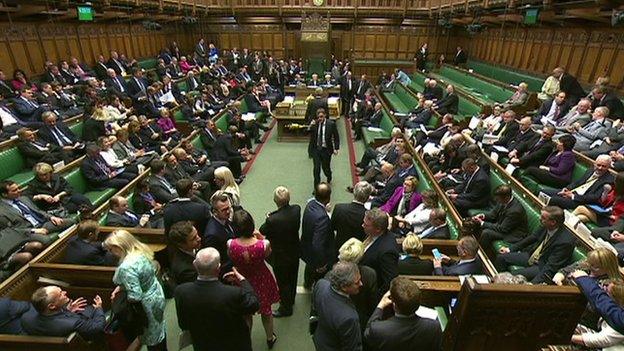EU referendum: MPs pass legislation to House of Lords
- Published
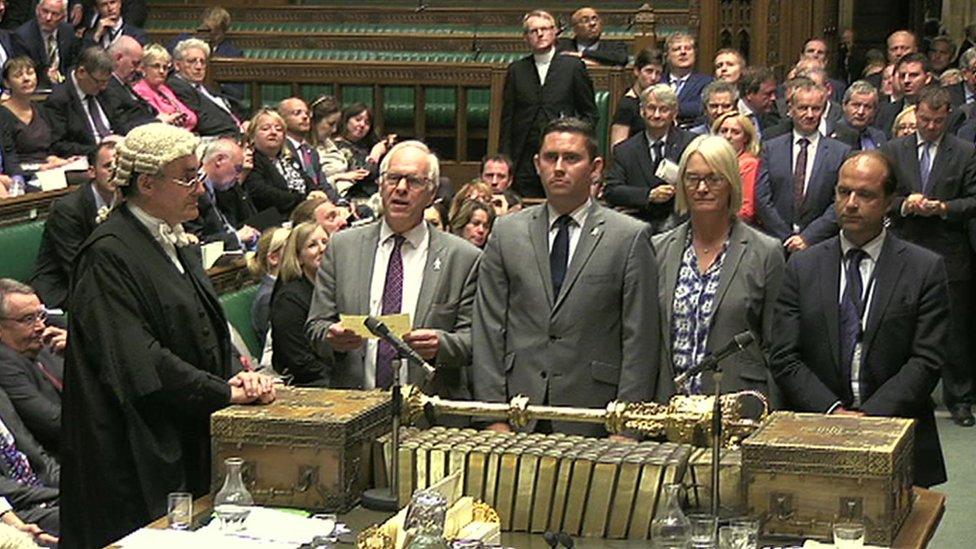
A referendum on Britain's membership of the EU has moved a step closer after MPs voted in favour of the legislation.
The bill will now be passed to the House of Lords for further scrutiny.
MPs voted in favour of an in-out referendum on Britain's EU membership by the end of 2017 by 316 votes to 53.
However, the government did suffer its first Commons defeat since the election - MPs voted against changing "purdah" rules, which limit government activity during the campaign period.
Ministers had wanted to amend the rules but Labour teamed up with rebel Tory MPs to block the move by 312 to 285 and ensure the normal rules would apply.
Labour said the defeat was "humiliating" for the Conservative government.

What is purdah?
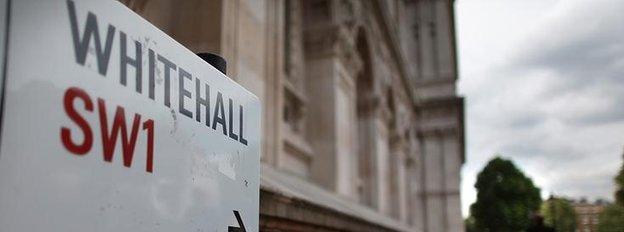
Purdah is a long standing convention whereby governments refrain from making any major announcements in the run-up to general elections or other polls to avoid influencing their outcome.
The existing rules were set out in legislation passed in 2000. They prevent ministers, departments and local authorities from publishing any "promotional material" arguing for or against any particular outcome or referring to any of the issues involved in the referendum.
The rules, which apply to the 28 days up to polling day, do not preclude ministers from issuing press notices or responding to specific requests for information from members of the public.

David Cameron had already made a number of concessions on the bill in response to Eurosceptic concerns the government could use the "Whitehall machine" to promote continued EU membership.
Ministers agreed to restore purdah restrictions for the referendum but with certain exceptions to allow ministers and others to conduct day-to-day business with the EU during the campaign period.
Arguing for a partial suspension of the normal rules, Europe Minister David Lidington said it would provide "greater clarity and certainty" on what issues were covered by purdah and what issues would be open to a legal challenge.
He said the package of proposals put forward by the government was "balanced and fair", and one in which the whole country could have confidence.
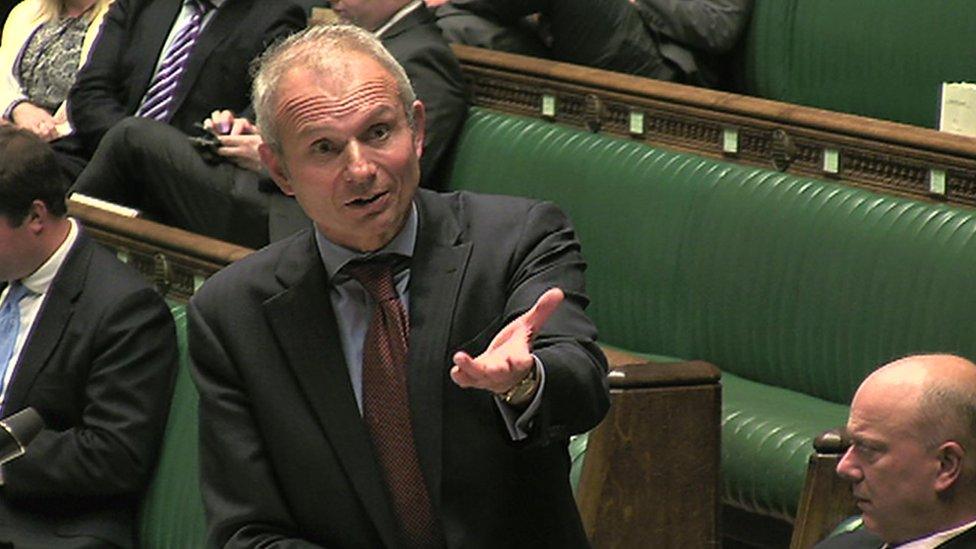
The minister insisted the changes being proposed by the government were fair
But he was accused by Tory Eurosceptic MP Sir Edward Leigh of offering "legalistic claptrap" in a bid to avoid a Commons defeat. Sir Edward said the process must be "considered to be fair" and argued for Labour's amendment - which would reinstate the full purdah rules in the bill - to be accepted.
Fellow Eurosceptic and Conservative MP Bernard Jenkin added his voice to calls for a tougher purdah regime to apply, saying the government "is taking us backwards with these proposals".
Labour's shadow Europe minister Pat McFadden, meanwhile, said the government's plans amounted to a watered-down version of purdah which could be further diluted by the proposed exceptions.
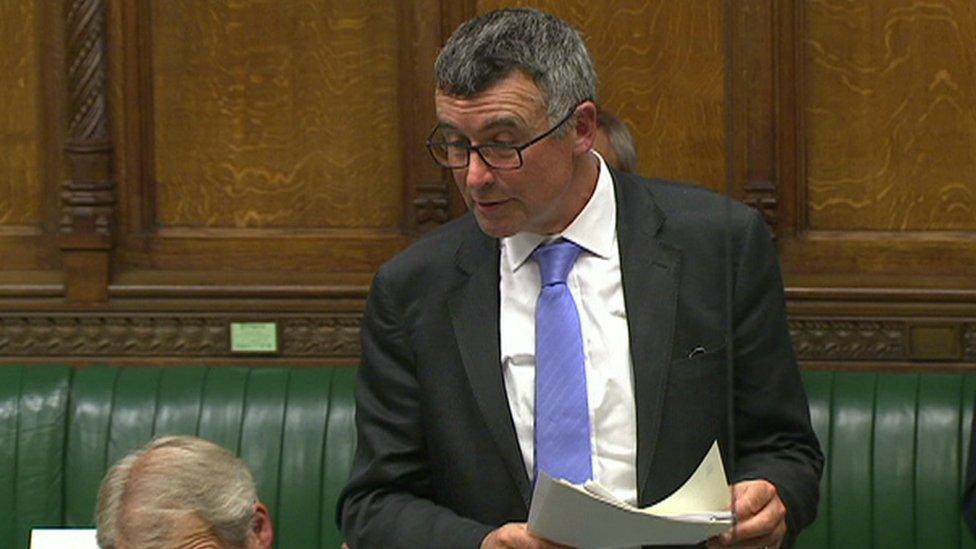
Bernard Jenkin was among the Conservative rebels to argue for stricter purdah rules to be applied to the EU referendum campaign
Analysis of the vote, which saw the government defeated by a majority of 27, showed there were 37 Conservative rebels.
They included five former Cabinet ministers: Liam Fox, John Redwood, Owen Paterson, Cheryl Gillan, and David Jones, and the chairman of the influential backbench 1922 Committee of Tory MPs, Graham Brady.
Commenting after the vote, shadow foreign secretary Hilary Benn said the government had tried to play "fast and loose" with the arrangements for the referendum.
No date has yet been set for the referendum on Britain's membership of the European Union but David Cameron has promised to hold the vote by the end of 2017.
- Published1 September 2015
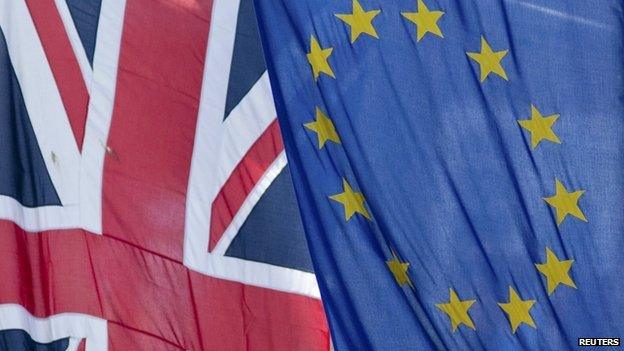
- Published1 September 2015
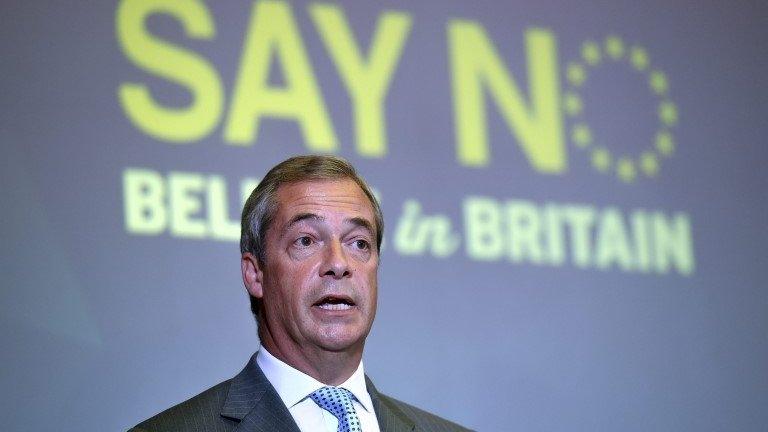
- Published16 June 2015
